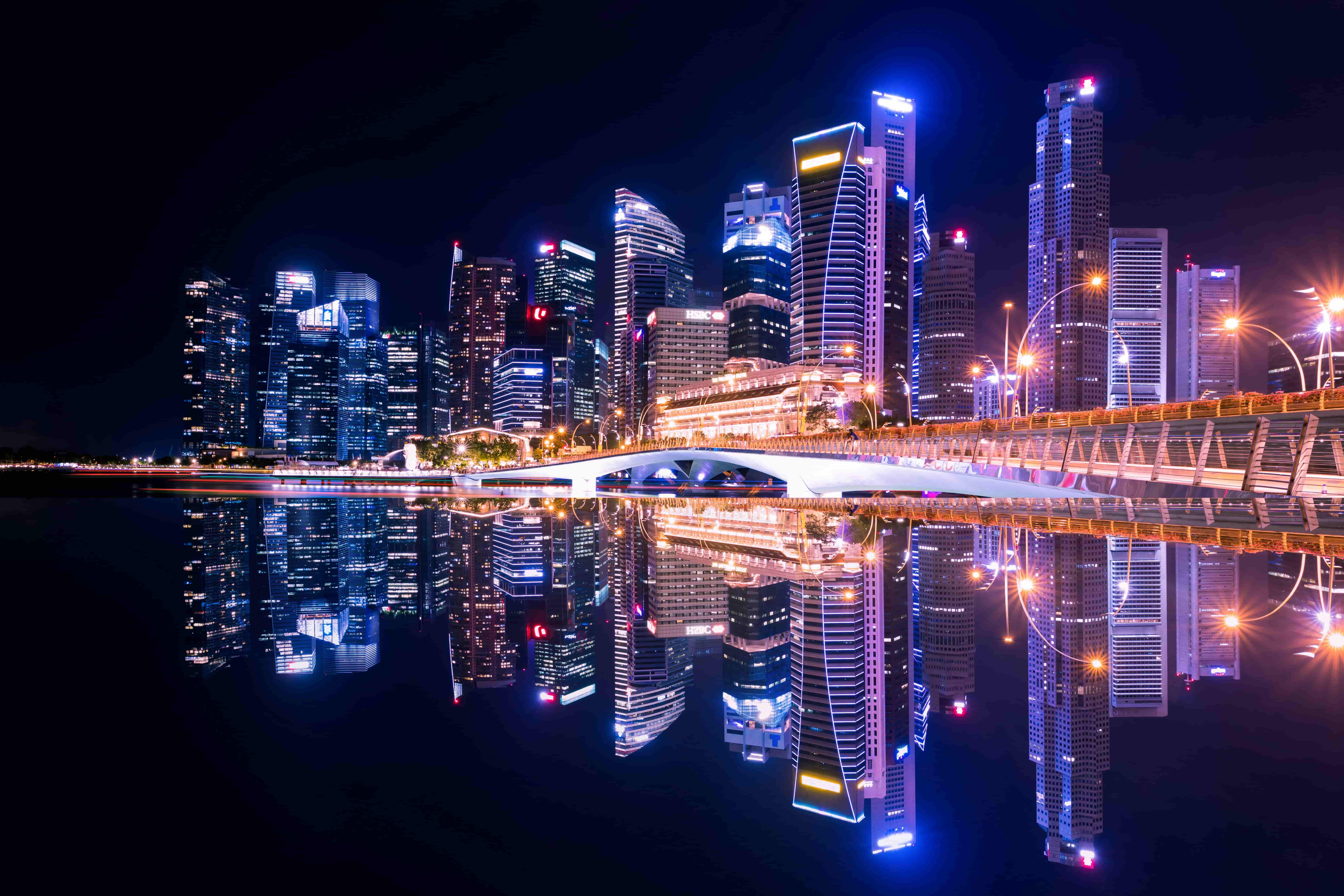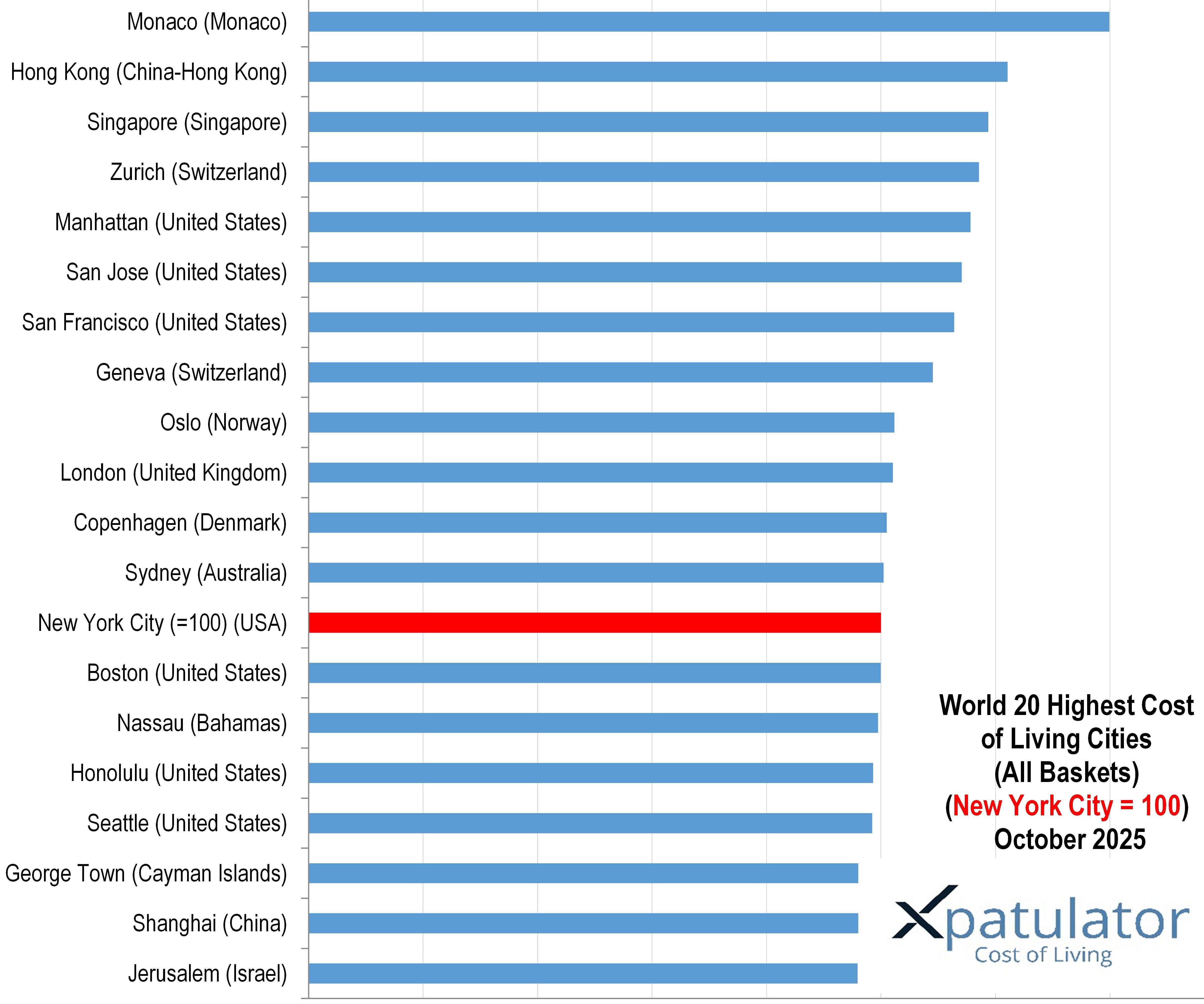
Top 20 Most Expensive Cities in the World 2025: A Comprehensive Cost of Living Analysis
2025-10-01
The October 2025 Xpatulator cost of living survey reveals the world’s 20 most expensive cities, with Monaco leading the pack by a huge margin, followed by Hong Kong, Singapore, and Zurich. These rankings expose how factors such as housing shortages, tax regimes, exclusivity, and economic prestige combine to push costs sky-high, pricing out all but the global elite. For expatriates and companies, moving to these cities means grappling with immense financial pressures, while for the cities themselves, the question remains whether their stratospheric price tags are justified by quality of life and opportunity. The rankings highlight not only the economic absurdities and social inequalities of the modern urban landscape, but also the urgent need for cities to address affordability if they wish to remain competitive in a world that increasingly allows top talent to live and work anywhere.
The World’s Most Expensive Cities for Expatriates, 2025
Every quarter, our new set of rankings brings debate among globetrotters, executives, and corporate accountants alike: which city is more expensive for international assignees? The latest Xpatulator survey, drawing on 780 locations, has once again crowned Monaco as the world’s priciest city, state and country, with an eye-watering cost of living index of 139.9—some 40% more expensive than New York City, which serves as the global benchmark (index 100). What lies behind this astonishing divergence in cost the cost of living?
Let us start at the top: Monaco is not just expensive, it is extravagantly so. For decades, the tiny principality has acted as a gilded magnet for the super-wealthy, lured by its unique tax status, ultra-exclusive real estate, and the dazzling prestige of Monte Carlo. Monaco’s index of 139.9 is not merely the result of scarcity; it is the logical outcome of an economic model designed around extreme exclusivity. With property prices routinely topping €50,000 per square metre, even the most mundane goods and services are subject to the “Monaco premium.” To live here is to pay for the privilege of rubbing shoulders with oligarchs, F1 drivers, and global celebrities. For ordinary professionals—frankly, for almost anyone outside the global 0.1%—it is an absurd proposition.

Hot on Monaco’s heels is Hong Kong (122.1), a city where space is so restricted that even millionaires must settle for vertical living. The cost drivers here are depressingly familiar: astronomical rents, a tax regime that rewards the wealthy, and the city’s strategic role as a financial hub. Yet Hong Kong, unlike Monaco, offers dynamism and scale. Its markets, its schools, and its infrastructure are truly world-class. However, political uncertainty and the ever-looming presence of Beijing have added a risk premium that, in my opinion, is not sufficiently offset by the tax breaks and shopping.
Singapore (118.7), in third place, is a lesson in engineered prosperity. The Lion City is clean, efficient, and relentlessly safe, but this comes at a steep cost. The government’s deliberate strategy of attracting multinational talent—combined with high duties on cars, imported goods, and property—pushes up prices across the board. Yet, for all its expense, Singapore’s value proposition is real: first-class healthcare, education, and connectivity make it the city of choice for Asia’s global elite.
Switzerland’s duo—Zurich (117.1) and Geneva (109.1)—are mainstays of any high-cost ranking. Here, costs are driven by high wages, punitive taxes, and an enviable standard of living. The Swiss franc, stubbornly strong, makes everything from a cup of coffee to a monthly train pass a small act of fiscal courage. Zurich edges out Geneva, thanks to its role as a financial centre, but both cities combine quality of life with breathtaking expense. If you are paid in francs, you may survive; if not, prepare to bleed.
America’s presence in the top 10 is both predictable and revealing. Manhattan (115.6), San Jose (114.1), and San Francisco (112.8) are the stuff of legend when it comes to eye-watering rents and stratospheric grocery bills. The Bay Area’s tech-fuelled economy has created a feedback loop of high salaries chasing limited housing, while Manhattan’s unique blend of finance, culture, and history ensures that demand far outstrips supply. Yet, for all the hype, the American cities feel less hostile to the aspirational middle class than Monaco or Hong Kong. If you are talented, lucky, and employed by the right company, you can make it work—at least for a while.
The top 20 is rounded out by a smattering of global icons and a few surprises. Copenhagen (101) and Oslo (102.3) are textbook examples of the Nordic model: high taxes, high wages, but also exceptional public services. London (102.1), the perennial favourite of expats, is 2% more expensive than New York. The UK capital is increasingly a tale of two cities, with the super-rich pricing out not just the poor, but the merely affluent. London is ranked above Copenhagen (101), Sydney (100.5), Boston (99.9), and Seattle (98.4).
Shanghai (97.5) is China’s sole representative, reflecting the country’s internal cost divides, and the lingering effect of currency controls. George Town (Cayman Islands, 97.6) closely follows Shanghai to round out the list, driven by tiny population, offshore finance, and the logistical costs of importing everything from toothpaste to tomatoes.
What does this mean for the global citizen? In plain terms: brace yourself. The difference between a move to, say, Zurich versus Shanghai can amount to tens of thousands of pounds annually, even after adjusting for housing and schooling. Companies relocating staff to the world’s priciest cities are under pressure to offer ever-higher packages, a trend that is both unsustainable and, frankly, inequitable. The war for talent is increasingly a war for affordable housing.
It is also a warning to the globally mobile: high cost rarely guarantees high quality. While some cities justify their premiums with safety, infrastructure, and opportunity, others are little more than fiscal fortresses for the super-rich. As remote work becomes more mainstream, cities that refuse to tackle their affordability crises may find themselves losing not just talent, but relevance.
In the end, these rankings are more than mere statistics. They are a window into the absurdities, inequalities, and opportunities of our age. The world’s most expensive cities offer glamour and possibility, but at a price that, increasingly, only the few can pay. For the rest, the choice is clear: adapt, negotiate—or look elsewhere.
Use Xpatulator’s Cost of Living Calculators and Tools for informed decision-making about the cost of living and the salary / allowance / assignment package required to maintain the current standard of living.